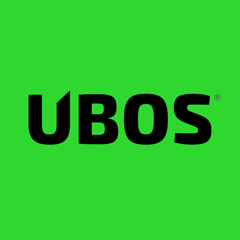We’re proud to announce that UBOS is now available in a first beta release.
You can run UBOS:
- on standard PCs, as their primary operating system
- on standard PCs and Macs, in VirtualBox
- on your Raspberry Pi Model B and Model B+.
The following apps are available and have been tested on all platforms:
![[Owncloud]](/images/owncloud-72x72.png)
Owncloud: Your Cloud, Your Data, Your Way!
Install with sudo ubos-admin createsite, specify app owncloud
![[Known]](/images/known-72x72.png)
Known: Publishing Platform for Everyone
Install with sudo ubos-admin createsite, specify app idno
![[Wordpress]](/images/wordpress-72x72.png)
Wordpress: Blog tools, publishing platform, and CMS
Install with sudo ubos-admin createsite, specify app wordpress
![[Mediawiki]](/images/mediawiki-72x72.png)
Mediawiki: The wiki that Wikipedia runs on
Install with sudo ubos-admin createsite, specify app mediawiki
![[Selfoss]](/images/selfoss-72x72.png)
Selfoss: The new multipurpose rss reader, live stream, mashup, aggregation web application
Install with sudo ubos-admin createsite, specify app selfoss
![[Shaarli]](/images/shaarli-72x72.png)
Shaarli: Your Own URL Shortener
Install with sudo ubos-admin createsite, specify app shaarli
and also Jenkins, the continuous integration app we use to build UBOS itself on UBOS.
Install with sudo ubos-admin createsite, specify app jenkins.
Some apps already have some accessories, which you may or may not want to install:
-
Wordpress plugins: wordpress-plugin-semantic-linkbacks, wordpress-plugin-social and
wordpress-plugin-webmention for Indie Web support;
-
Mediawiki extension: mediawiki-ext-confirmaccount to cut down on wiki spam;
-
Jenkins plugins: jenkins-plugin-git, jenkins-plugin-git-client, and jenkins-plugin-scm-api
for Git integration.
The following features should work on all platforms:
-
Single-command deployment of web apps, with automatic database provisioniong,
webserver configuration, etc.
-
Multiple virtual hosts on the same host. For example, you can run sites
http://home.example.com/ and http://personal.example.net/ on the same host.
-
Multiple apps on the same virtual host. For example, you can run
Wordpress at http://example.com/blog and Mediawiki at http://example.com/wiki
-
Multiple instances of the same app on the same host. For example, you can run three
instances of Wordpress on the same host, such as at http://example.com,
http://example.net/blog and http://example.net/news
-
Single-command undeployment
-
Single-command full system upgrade which backs up all your data, upgrades all
code from the operating system over middleware to applications, runs whatever
data migrations might be necessary, and redeploys all your apps.
-
Single-command backup and restore.
and a few other things, see the documentation section of this
site.
This is a beta, so expect bugs (release notes).
We run several production sites on it already, but we don’t recommend (yet) that you do.


![[PC]](/images/pc-79x100.png)
![[Virtual Box]](/images/vbox-82x100.png)
![[Raspberry Pi]](/images/rpi-83x100.png)
![[Owncloud]](/images/owncloud-72x72.png)
![[Known]](/images/known-72x72.png)
![[Wordpress]](/images/wordpress-72x72.png)
![[Jenkins]](/images/jenkins-72x72.png)
![[Mediawiki]](/images/mediawiki-72x72.png)
![[Selfoss]](/images/selfoss-72x72.png)
![[Shaarli]](/images/shaarli-72x72.png)

![[Meetup logo]](http://img2.meetupstatic.com/img/8308650022681532654/header/logo-2x.png)
![[Downloads by platform]](/images/2014-12-22/downloads-by-platform.png)
![[Downloads by TLD]](/images/2014-12-22/downloads-by-tld.png)